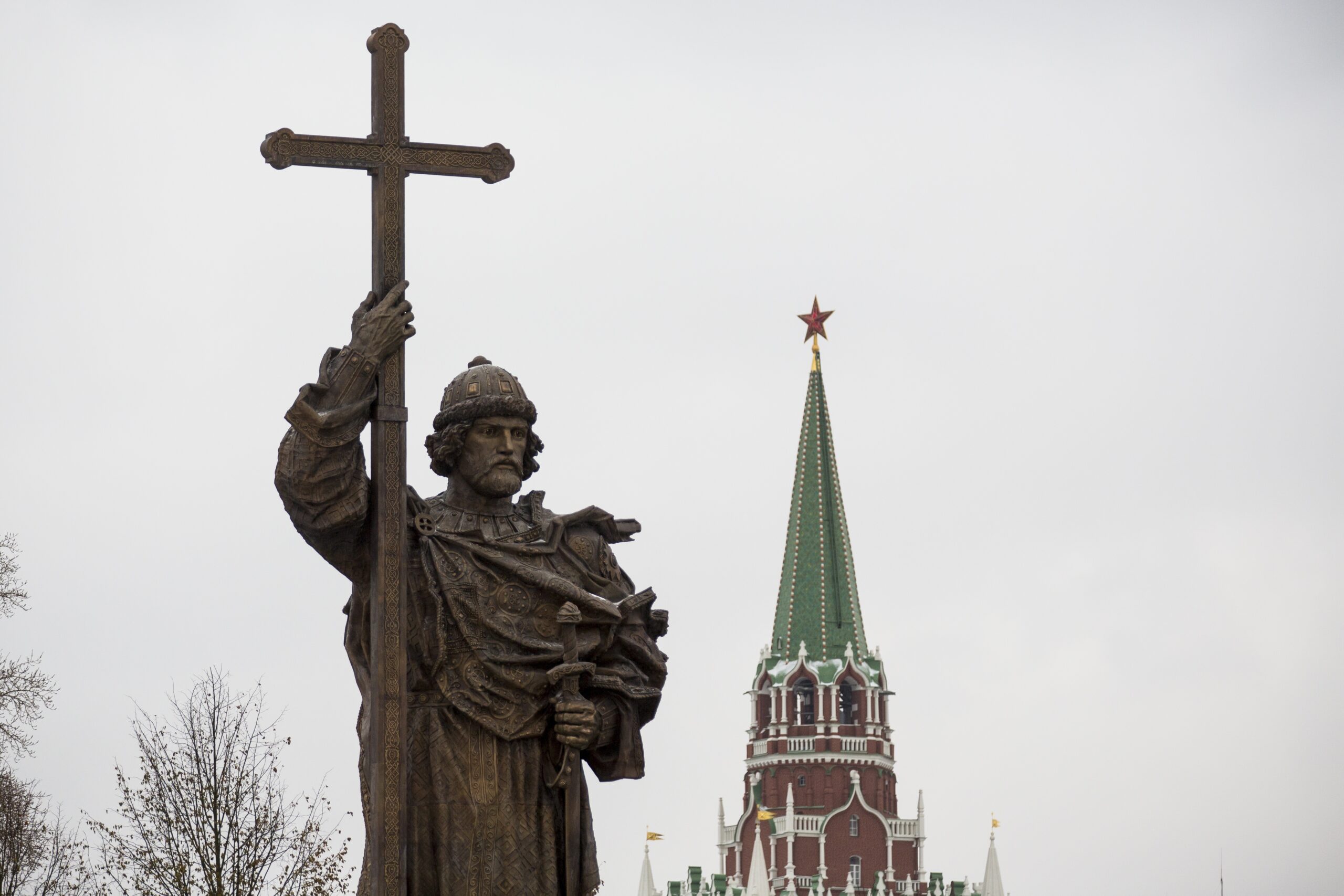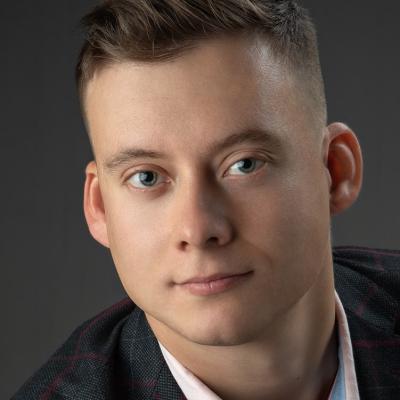Paradigm shift. Order reconfiguration. Transition period. Change of the conceptual framework … There are so many fresh terms that Russian foreign policy experts are conjuring up to describe the new political dynamics unleashed by Russia’s full-scale invasion of Ukraine. But they all amount to much of a muchness: the main impetus seems to be an attempt to explain to Russians and the outside world why Russia ended up in a ‘special operation’— why this was both inevitable and justifiable (despite the death and destruction) and why the future must be better than today.
Repeatedly, the idea of a better future gets explained through the lens of multipolarity. This is the Kremlin’s notion that the world will soon be dominated by many great nations instead of one or two. Those poles will be Russia, China, India, the US, the EU and maybe some others — but the result of this network governance is always claimed to be a more just world. The Ukraine war hasn’t changed that part of Russia’s thinking; in fact, many Russian foreign policy experts are now claiming this conflict only proves that the US is «desperately trying to hold on to unipolarity» and Russia had no choice but to «stand for a more just world» and thus had to fight for its principles in a «collision with US over Ukraine». In essence this is how Russia’s foreign policy community wishes to explain the ongoing war, almost always depriving Ukraine of any agency. This explanation is especially relevant when Russia is in talks with the Global South.
Amid sanctions and severed trade links, Russian foreign policy experts have also been busily saying their farewells to the concept of Great Europe while praising the future of Great Eurasia. On top of that, the Kremlin has added a new foreign policy concept into the mix that has created some challenges. It has introduced a new term — the «country-civilization» — that now has to be integrated into larger narratives; and as Russian foreign policy experts note, this was unexpected.
Sensitive and elusive questions of identity
The main problem is that the Russian foreign policy community is largely free to discuss abstract concepts of global governance. (Admittedly that does not stray far beyond what this article has already outlined.) But a claim that Russia is now a «country-civilization» would put drag those bromide debates into some more sensitive talking points because it touches on the question of what Russia is.
The concept that the Kremlin has published offers no straightforward definition of «country-civilization» but it gives plenty of hints. «Country-civilization» is mentioned in reference to «centuries-old civilizational and spiritual ties between the people of Russia»; or as a «core of the civilizational community of the Russian world»; similarly, the concept alludes to «Russia’s special position as a unique country-civilization and a vast Eurasian and Euro-Pacific power that brings together the Russian people and other peoples belonging to the cultural and civilizational community of the Russian world».
In other words, «country-civilization» is a quality of Russian governance that enshrines the peoples that live in Russia with a special spiritual value and a right for a «constructive civilizational role» of Russia over the wider Eurasian space. These tropes are reminiscent of 19th century European debates about the burden of a civilizational role and colonization rights, as well as taking a cue from Russia’s own thinkers like Ivan Ilyin, who dwelt on the idea of a Russian man’s burden.
Commenting on the issue, Russia’s senior officials tried to make it clear that a Russian «country-civilization» is nothing like the European Empires of the past, claiming that «We are the only continent that wasn’t colonized». As the deputy head of Council of Federation Konstantin Kosachev insists, many nations have tried to colonize Russia — Poles, Swedes, French, and Germans — but all failed. He does concede that Russia was colonized by the Mongol Horde, but «only the territory not the people». The Russian own colonization of vast areas is skipped over, as he asserts that «90% of Russian population feel themselves as part of one nation».
Colonial past denialism and rejection of any references to imperial rule on top of proclamations of the «unity of our people» is a central theme in most commentary regarding the emergence of the «country-civilization» in official documents. Since the concept was published in late March 2023, there are no experts out there daring to try to actually define who or what «our people» really are, leaving that for the reader to define: Eurasianists will see Eurasianism; Russian Imperialists will beckon for those living within their old Empire; Soviet nostalgics might even look to all those living within the old Warsaw Pact. This approach of vague identity definition is not new. If the Kremlin’s latest construct preaches internal unity and assigns the external other (the enemy) as the West — it is a concept worth putting out into the ether.
Thus, most foreign policy experts unpack «country-civilization» as a feature of antiwesternism. Some insist that this only further confirms Russia’s full departure from Europe and makes it into a form of «anti-West.» Practically speaking, this is interpreted as an official signal to fight off all «western influence». In some ways this interpretation of Russia as a country-civilization might remind us of the old Slavophiles, but in a very crude manner and without an actual reference to Slavs.
More applied commentary treats this as a command to «stop giving a damn what is said or written» about Russia and invest even more in being fully self-sufficient. This fits greatly into Russia’s policies of opting out of international organizations and agreements.
More cautions foreign policy experts attempt to criticize this approach, recognizing that «such constructs are also biased and solve practical and ideological problems». And as it often happens with big word concepts, many seek to reason that «the concept of a country-civilization makes it possible to construct our political identity, to complete it with new elements. But this will require a huge theoretical work both on the concept itself and on a wider range of topics». Such has been the way of still theorizing what, say, multipolarity is — a debate that goes on since the 1990s even though the term has been used very instrumentally already by state officials.
Who needs country-civilisations?
In essence, there is nothing new in the term. In commentaries, it is being tied up with developments that are already a norm. Could we then treat it as just another brick in the wall of a new ideology that some senior foreign policy experts have been pleading for? I would say yes, sitting right beside Putin’s bizarre proclamation that patriotism is Russia’s «national idea».
And more bricks have been falling into place. In early of August, we’ve learned of how new Russian official history textbooks are rewriting the way the Russian Imperial past is treated: namely, something very different from «classic imperialism». As the narrative goes, British or French imperialists were bad, while Russian Imperial rule is defined is a just and undisputedly positive development.
This has all been a long time in the educational pipeline. Since the «conservative turn» of 2012, there were several attempts to propose an introduction of some form of state ideology about a shared past. And there, one the biggest challenges is an inability to define what a «Russian multinational people» could be. Even the 2020 constitutional amendment that tried to highlight the role of ethnic Slavic Russians did it very carefully: «The Russian language shall be a state language on the whole territory of the Russian Federation as the language of the state-forming nation that is a part of the multinational union of equal peoples of the Russian Federation».
More evident ideological constructs in use are the traditional values that separate Russian and «collective west» based on a treatment of family, gender, and other social norms. More practical values, as proposed by foreign policy community, include «rejection of protests as a form of political conduct» and a «cult of Victory».
Previously, many scholars tried to locate ideological inspiration of Putin’s regime in the works of Ivan Ilyin or Lev Gumilev; but now these attempts to paint a picture of a complex story are no longer necessary. As highlighted by heavy-weight foreign policy expert Sergei Karaganov — most of the ideology that Russia needs is already here — it should only be distilled from Putin’s speeches and made official. Such was the way of «country-civilization» — a term that was first found its way into official discourse thanks to a mention from President Putin (in the fall of 2022.)
Any proper formulation of official «state ideology» will likely not take place. That would require giving definitive answers to questions that the Kremlin would prefer to remain vaguely defined. But for practical purposes, both officials responsible for foreign and domestic politics might increasingly quote President Putin, just as their Soviet predecessors quoted Lenin some decades ago.










